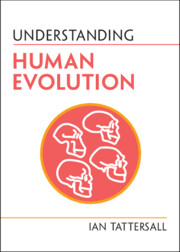Book contents
- >Understanding Human Evolution
- Series page
- Understanding Human Evolution
- Copyright page
- Reviews
- Dedication
- Frontispiece
- Contents
- Maps
- Foreword
- Preface
- Acknowledgments
- 1 Evolution
- 2 Technology: Dating, Diets, and Development
- 3 Discovery and Interpretation of the Human Fossil Record: The Early Days
- 4 Discovery and Interpretation of the Human Fossil Record: Later Developments
- 5 Early Bipeds
- 6 The Muddle in the Middle
- 7 Homo heidelbergensis and the Neanderthals
- 8 The Emergence and Spread of Homo sapiens
- Epilogue
- Summary of Common Misunderstandings
- References and Further Reading
- Figure Credits
- Index
5 - Early Bipeds
Published online by Cambridge University Press: 21 July 2022
- >Understanding Human Evolution
- Series page
- Understanding Human Evolution
- Copyright page
- Reviews
- Dedication
- Frontispiece
- Contents
- Maps
- Foreword
- Preface
- Acknowledgments
- 1 Evolution
- 2 Technology: Dating, Diets, and Development
- 3 Discovery and Interpretation of the Human Fossil Record: The Early Days
- 4 Discovery and Interpretation of the Human Fossil Record: Later Developments
- 5 Early Bipeds
- 6 The Muddle in the Middle
- 7 Homo heidelbergensis and the Neanderthals
- 8 The Emergence and Spread of Homo sapiens
- Epilogue
- Summary of Common Misunderstandings
- References and Further Reading
- Figure Credits
- Index
Summary
Seven million years ago the continent of Africa, actively bulging upward along the north–south line of the volcanically active Great Rift Valley, was also experiencing climatic drying and increased seasonality of rainfall due to a general oceanic cooling. Particularly to the east of the Rift, the formerly ubiquitous forests were giving way to woodlands and bushlands, and even to some early grasslands, stressing the populations of large-bodied, tailless, and mainly fruit-eating apes that the Miocene forests of both Africa and Eurasia had harbored in profusion. But the stress of change also brought with it opportunity, in the form of the very different range of potential food resources offered by the expansion of more open environments. And while modern apes living partially in open environments tend to seek essentially the same resources there as those they exploit when living in closed forest, it appears that some archaic ape lineages were prepared to be a little more flexible, and to explore the new opportunities the expanding mosaic of environments had to offer.
Keywords
- Type
- Chapter
- Information
- Understanding Human Evolution , pp. 80 - 93Publisher: Cambridge University PressPrint publication year: 2022



